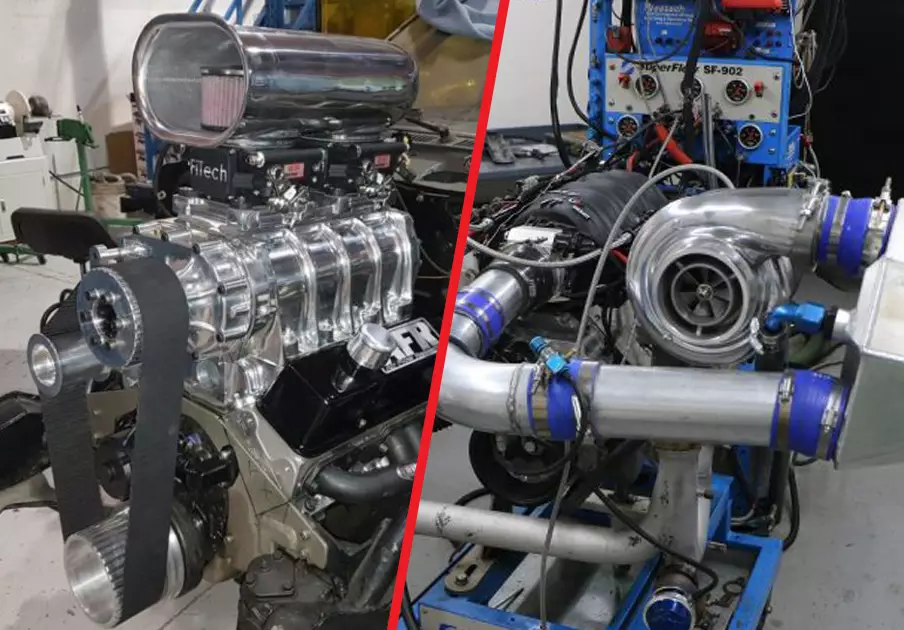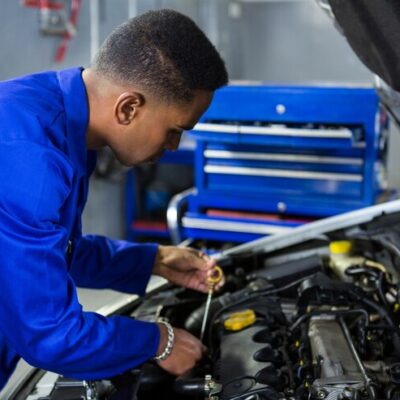Turbochargers have become a staple in modern automotive engineering, significantly enhancing engine performance.
However, like any mechanical component, they can encounter problems. Whether you’re a seasoned automotive enthusiast or a curious car owner, understanding turbocharger problems can help you maintain your vehicle’s performance and longevity.
This article will explore common turbocharger issues, their causes, and effective troubleshooting techniques.
Common Turbochargers Issues
Oil Leaks
Oil leaks are indeed a common issue with turbochargers. They can arise from various factors, including worn seals, damaged gaskets, or excessive pressure within the turbocharger housing.
Oil leaks can lead to reduced lubrication for the turbocharger’s bearings and turbine, causing them to overheat and potentially fail. If addressed, this can decrease engine performance, cause power loss, and even cause engine damage.
Our technicians always advise having any oil leaks promptly inspected and repaired to prevent further complications and ensure the longevity of your turbocharger.
Boost Leaks
Boost leaks can significantly impact your vehicle’s performance. Pressurised air escapes from the turbocharger system, leading to a noticeable drop in engine power, decreased fuel efficiency, and even potential engine damage.
Common causes include faulty pipes, hoses, or clamps that may have become loose, damaged, or deteriorated over time.
Additionally, damage to the turbocharger, such as cracked housing or worn seals, can cause boost leaks. If you suspect a boost leak, it must be diagnosed and repaired promptly. A professional mechanic can inspect your turbocharger system for signs of leaks and recommend the necessary repairs. Neglecting a boost leak can lead to further problems, so addressing it sooner rather than later is crucial.
Turbocharger Whine or Noise
Unusual noises, such as whining or squealing, are red flags indicating potential turbocharger issues. These sounds can be attributed to various factors, including worn bearings, damaged impellers, or foreign objects lodged within the turbine.
If you notice these symptoms, seek professional attention promptly. Ignoring these warning signs can lead to more significant damage and costly repairs.
A qualified mechanic can accurately diagnose the problem and recommend appropriate solutions, such as cleaning, repairing, or replacing the turbocharger. Remember, when it comes to turbocharger noise, professional intervention is vital.
Over boosting
is a severe issue that can significantly impact your vehicle’s lifespan and performance. When a turbocharger generates excessive boost pressure, it can create undue stress on the engine’s components, such as the pistons, connecting rods, and bearings.
This can result in premature wear, reduced engine efficiency, and even catastrophic engine failure. The causes of overboosting can be multifaceted.
Faulty sensors, which monitor the turbocharger’s performance and provide data to the ECU, can lead to inaccurate readings and incorrect adjustments. A malfunctioning wastegate, a valve that regulates boost pressure, can also contribute to over-boosting by failing to release excess pressure.
Additionally, programming errors in the ECU can cause it to command the turbocharger to produce more boost than is safe for the engine. To prevent overboosting, it’s essential to regularly inspect and maintain your vehicle’s turbocharger system, including the sensors, wastegate, and ECU.
Coated Turbine Blades
While offering enhanced durability and heat resistance, coated turbine blades can still experience performance degradation due to carbon buildup. This accumulation, often caused by incomplete combustion or low-quality fuels, is a barrier to airflow, hindering the turbine’s power generation.
As the carbon layer thickens, it can lead to a significant drop in engine performance, characterised by reduced power output, increased fuel consumption, and, potentially, the catastrophic failure of the turbocharger.
We recommend you carry out regular maintenance, including cleaning or replacing the turbine blades, which is crucial to mitigate these issues. Additionally, using high-quality fuels and ensuring proper engine operation can help prevent excessive carbon buildup.
A properly functioning turbocharger is crucial to overall vehicle performance, and any issues that assail your car’s turbocharger should be addressed as quickly as possible. Do you need a garage to assess and repair your turbocharger and meet your vehicular needs?
Fivestar Autocentre can solve that for you. We were recently recognised as number 1 in Huddersfield’s top three best-rated car garages in the UK.
Yes, it doesn’t hurt to brag about it a bit. Our goal is to get your car back to its prime performance level. Book a service with us today!


